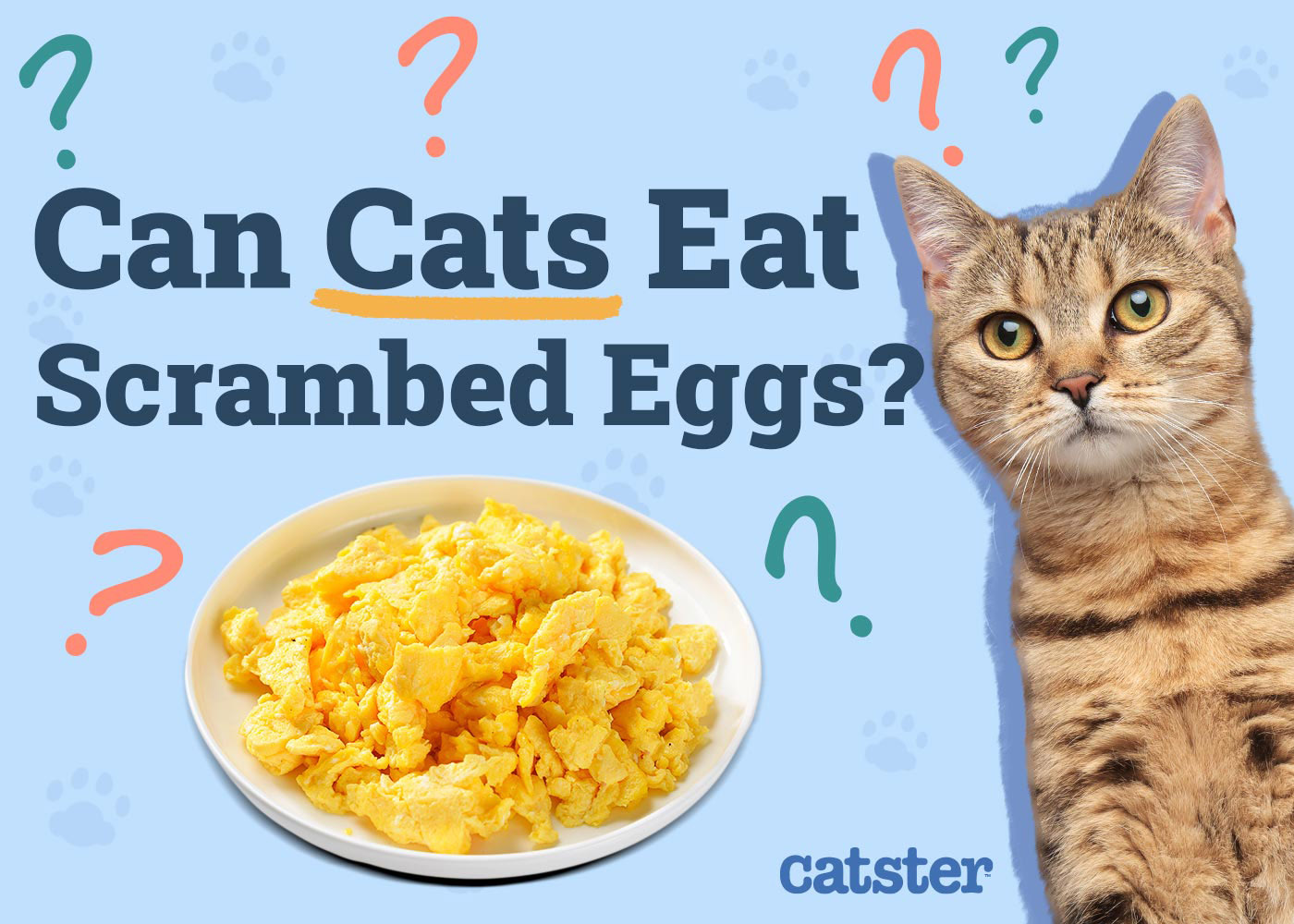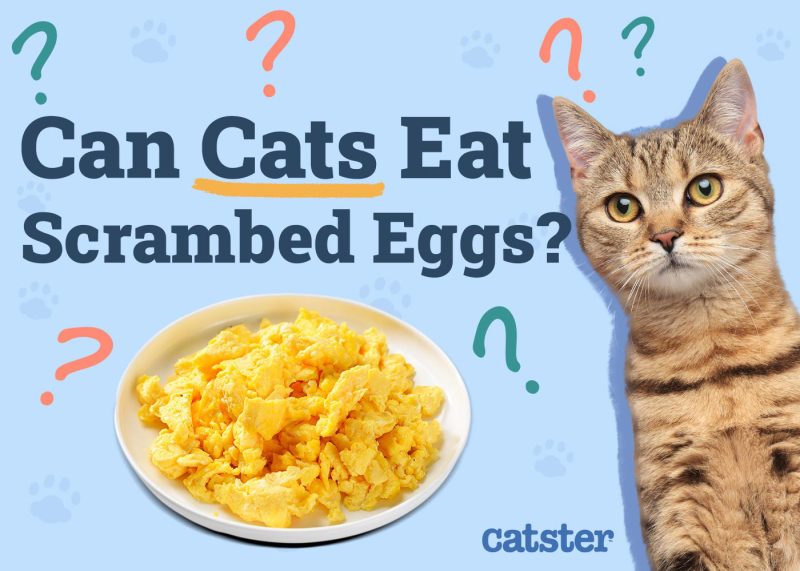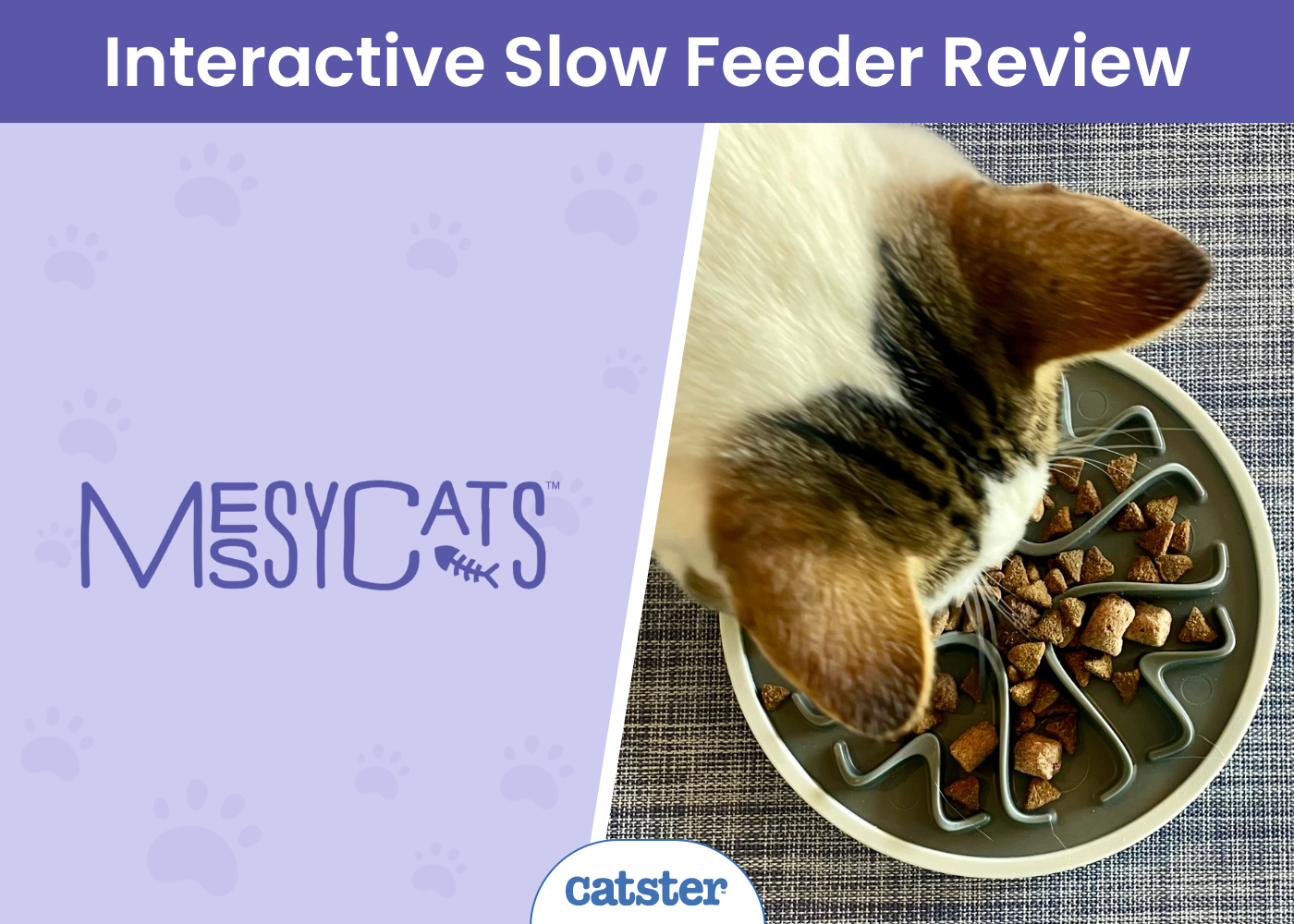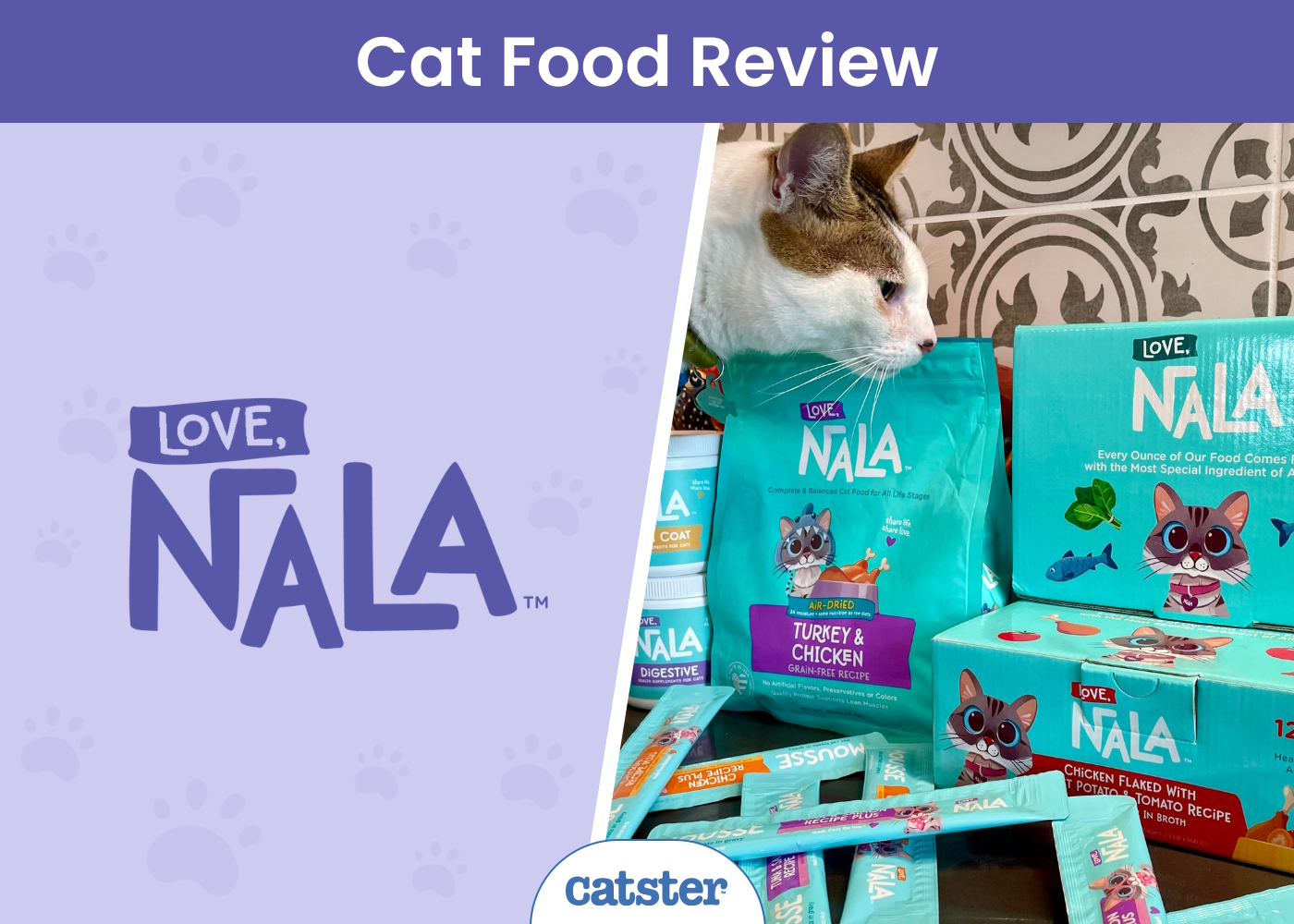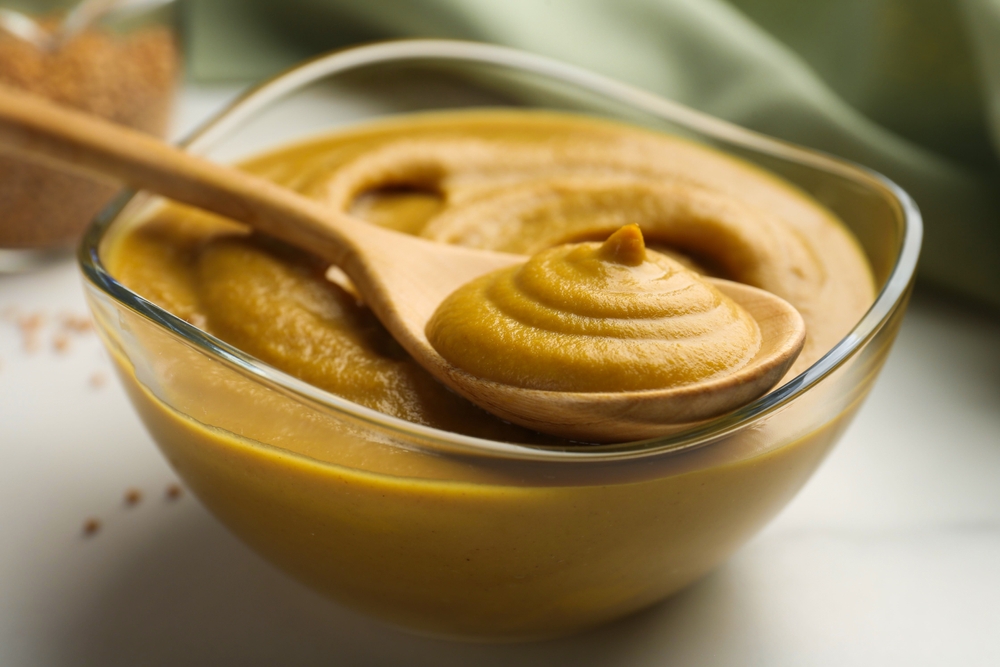Click to Skip Ahead
There’s no better breakfast than some nicely cooked scrambled eggs and a couple of slices of toast. It’s simple, delicious, and nutritious. So, what’s the harm in sharing your favorite breakfast with your furry feline companion? Can your cat eat scrambled eggs with you next time you’ve made a fresh batch?
Cats can have scrambled eggs when they are prepared adequately, and are generally safe, with some caveats. Eggs can actually make for a great little treat for most cats. But that doesn’t mean there aren’t some precautions you need to take before feeding your cat scrambled eggs—or eggs in any form for that matter.
Can Cats Safely Eat Scrambled Eggs?
Cats are considered obligate carnivores. This means that they do not really possess the ability to efficiently convert vegetable or plant matter into meaningful nutrition. They thrive on a diet of meat and meat byproducts. A cat’s physiology is naturally designed for the consumption of meat. Also, cats have short GI tracts (relative to their body size) when compared to dogs and an exceptionally short GI tract when compared to herbivores.1
Eggs are essentially animal protein. In the wild, some cats are notorious for raiding the nests of unsuspecting birds and consuming their eggs. Domestic cats consume more egg and egg products than you would think. Many cat foods have binding agents that help to keep kibble together — several of which are made with eggs.
However, sometimes eggs get a bad rap, with information being extrapolated from its use in humans. Egg yolk is fatty and contains cholesterol, which is believed by some to increase the potential risk of heart problems in humans. However, most cholesterol in our bodies is actually made by the liver from saturated and trans fats and not from dietary cholesterol. 2
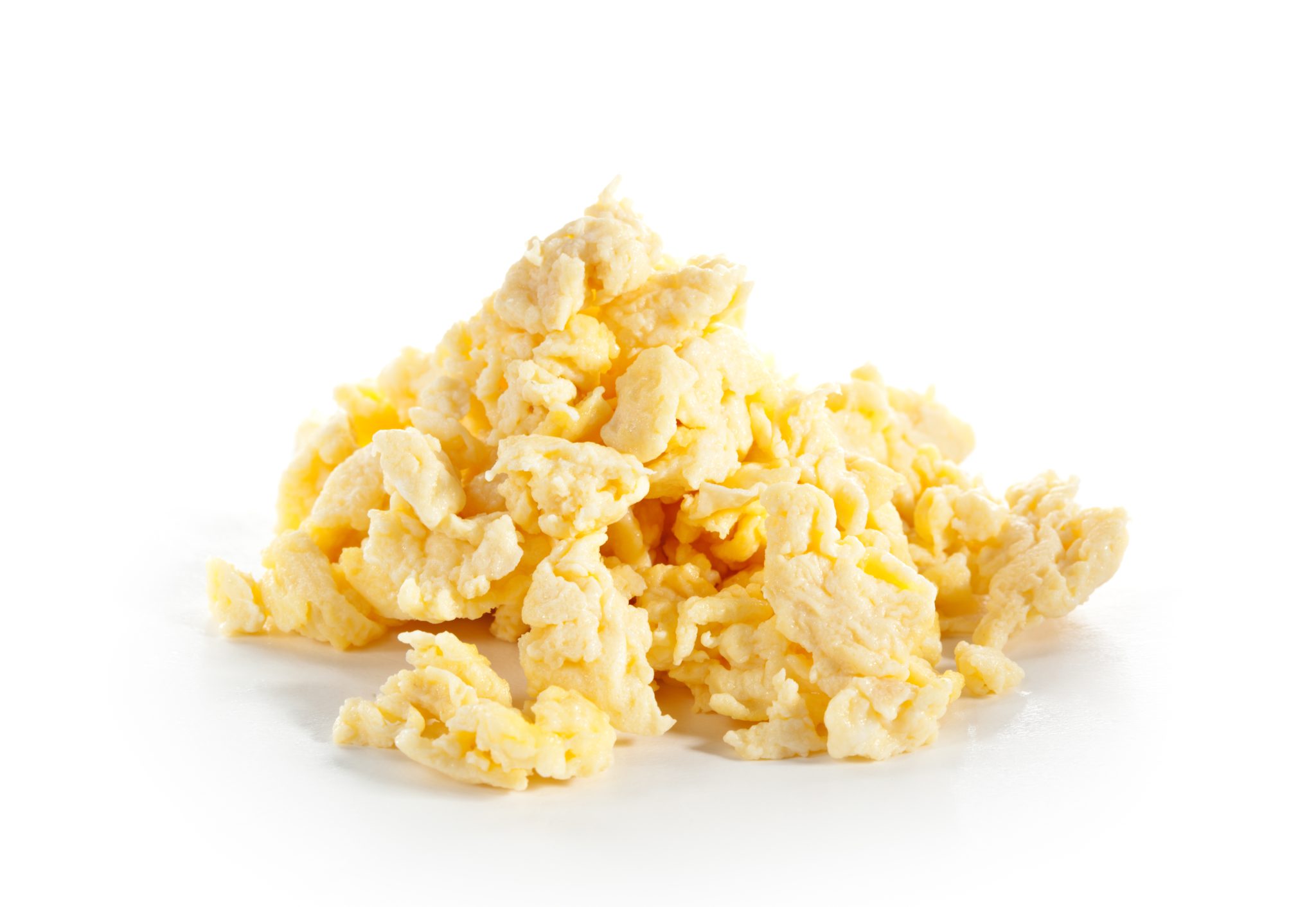
Cats are known to suffer from heart disease as well; however the cause for heart disease in cats remains complex. There are many factors that may influence it, such as genetics, lifestyle, weight, diet, and dietary deficiencies, or it may occur secondary to other underlying health issues, such as hyperthyroidism.
Feline heart problems generally fall under one of three conditions: hypertrophic cardiomyopathy, dilated cardiomyopathy, and restrictive cardiomyopathy, although there are a few more heart problems cats can experience.
Hypertrophic cardiomyopathy still does not have a clearly identified cause and is influenced by many factors, while in some cat breeds, such as the Maine Coon and American Shorthair, it has been shown to be hereditary. In addition, dilated cardiomyopathy has been linked to taurine deficiencies. Fortunately, eggs are a great source of taurine.
Since egg yolk is quite rich in healthy fats, it may not be appropriate for cats suffering with digestive issues or pancreatitis, and this decision should be based on your vet’s recommendations. However, they should be fine eating the whites of the egg when properly cooked.
So, it only stands to reason that cats can indeed safely eat scrambled eggs when prepared adequately and while keeping in mind their individual nutritional needs and health risks. We’ll go into this shortly, so continue reading.
Benefits of Feeding Your Cat Scrambled Eggs
There are quite a few nutritional benefits that make scrambled eggs good for cats.
Proteins and Amino Acids
Since eggs are pure animal protein, they’re chock full of essential amino acids and other nutrients for your cat. Your kitty uses 20 different amino acids in their body, and 11 of those are deemed essential.3 Eggs, depending on their size, yolk versus white content, and preparation, contain substantial amounts of non-essential and essential amino acids, including a small amount of taurine.4
However, this does not mean that eggs can replace a balanced and complete feline diet, because they can’t. There is much more that cats need on a daily basis that eggs cannot provide, particularly not in sufficient amounts. Eggs, when gently cooked or scrambled without any additives, seasonings, or salt, can be a great treat for your cat.
Beneficial for Skin and Coat
Eggs are a great source of biotin. Biotin is part of the B-complex of vitamins and is also known as vitamin H. And it’s particularly important for your hair, skin, and nails. And that goes for your cat too. However, raw and undercooked eggs contain avidin, a protein that binds biotin and reduces its bioavailability. This can lead to biotin deficiency in the long term, exhibiting as poor coat health and dry skin.
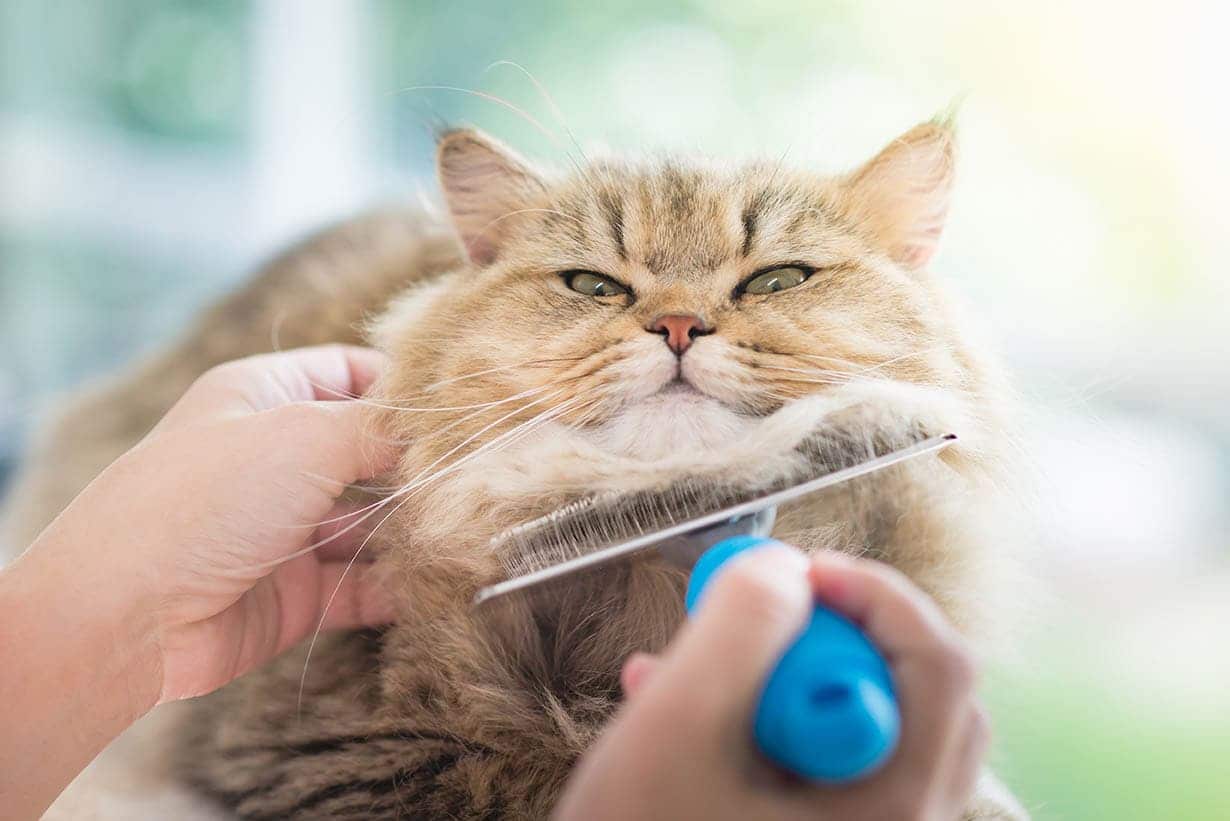
What About Eggshells?
Eggshells are a great source of healthy calcium, which can help maintain bones and teeth. Hang on, though. We’re not saying to just go give your cat a bunch of eggshells, but hear us out. The best way to feed eggshells to your cat is to grind them into a fine powder that you can mix in with their food, but only after speaking with your vet first, as this may not be appropriate for all cats based on their health status and the rest of their nutrition. It’s very important for certain minerals to be in an appropriate ratio when it comes to feeding cats.
Before offering eggshells, be sure to properly clean them, as they may be contaminated with bacteria. Alternatively, you can opt for pasteurized eggs for an added layer of security.
You can also boil the egg shells; however, this does tend to make them somewhat more firm, and therefore, when prepared this way, eggshells should be very finely ground into a powder before being fed to your cat. The boiling process also leads to a loss of some nutrients from the eggshell. However, this loss is considered inconsequential, as they still retain much of their calcium.
Precautions to Observe When Feeding Your Cat Scrambled Eggs
Just because eggs are great for your cat doesn’t mean you don’t need to be careful. By improperly feeding eggs to your cats, you can do more harm than good.
Don’t Feed Them Too Many Scrambled Eggs
Eggs are great for your cats in moderation as a treat. But too many eggs at once can lead to some serious issues. Eating too many eggs too frequently, particularly the yolk, can lead to digestive upset or even cat obesity long term. Eggs are a great source of protein, but excess of any unused calories will lead to weight gain.
Be Mindful of Portion Size
One egg for your cat might not seem like much. But most adult people only eat one or two eggs. Imagine that for a cat, which is a fraction of our size. The best way to prevent overfeeding eggs to your cat is to either scramble or hard-boil them first, and then cut a piece into bite-sized portions.
These methods of cooking are easiest for divvying out proper portions. A small amount of cooked or scrambled egg once or twice a week is more than enough for your feline. Remember, treats should not make more than 10% of the cat’s daily calorie intake and should ideally be closer to 5%.
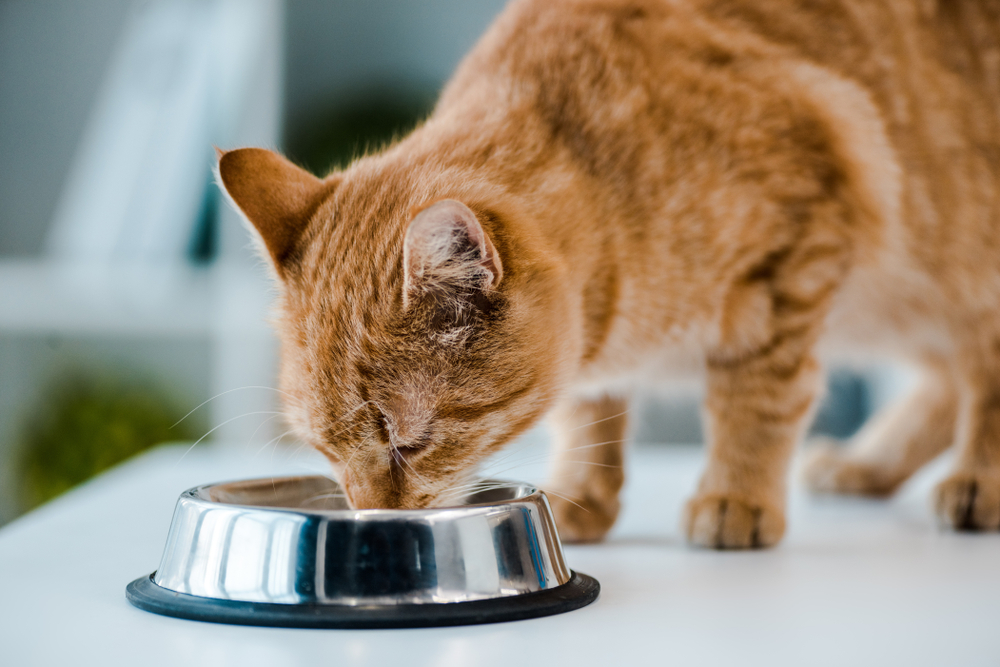
Do Not Add Any Mix-Ins
We cannot stress this enough. If you’re going to feed your cat eggs, feed them pure eggs. While you may love a little onion, chives, or garlic in your eggs, these are toxic and very harmful for cats. Also, any other veggies may likely be difficult for your cat to actually digest. So, just stick with the basics and there’ll be no issues.

If you need to speak with a vet but can’t get to one, head over to PangoVet. It’s an online service where you can talk to a vet online and get the personalized advice you need for your pet — all at an affordable price!
Can Cats Eat Raw Eggs?
This is probably the most controversial part of cats eating eggs, given that there’s really no clear-cut answer. Yes, technically cats can eat raw eggs, but not without risks for their health, mainly food poisoning. However, this can be circumvented to a large extent by opting for pasteurized raw eggs.
If a raw diet for your pet isn’t something you aspire to implement, we recommend scrambling or boiling your eggs for your kitties. Therefore, if you’re part of this crowd, it’s best just to cook their eggs. Raw eggs also contain avidin, which may reduce absorption of biotin, as previously mentioned. However, they do offer higher quantities of other nutrients, which are lost as an egg is cooked.
Learning about what your cat can and cannot eat is a crucial part of keeping them happy and healthy! Choosing a bowl to serve cat-friendly foods in is another important decision pet owners face. Satisfy the specific needs of your cat with the innovative design of the Hepper NomNom Cat Bowl. Learn why it’s our (and our cats!) favorite food and water dish here. At Catster, we’ve admired Hepper for many years and decided to take a controlling ownership interest so that we could benefit from the outstanding designs of this cool cat company!
Conclusion
So, Can cats eat scrambled eggs? Absolutely, but only when taking certain important precautions. Scrambled eggs can be a good snack for cats, but only occasionally. Eggs shouldn’t be a daily occurrence for cats unless they are on a custom prescription diet that allows for it. For cats on a commercial diet, it’s best to treat your cat’s egg consumption as you would a fancy brunch. It’s nice every now and then, but there’s definitely too much of a good thing.
See also:
Featured Image Credit: planet_fox, Pixabay | Vladimir Adrian, Pixabay

